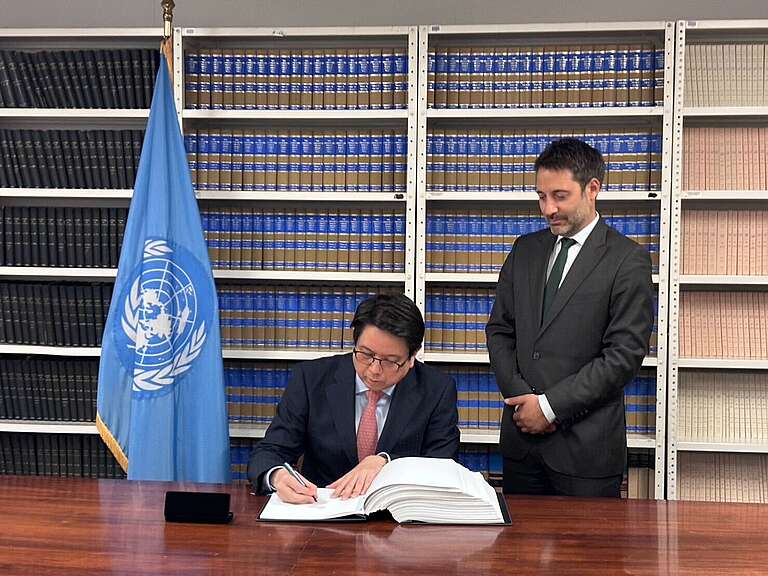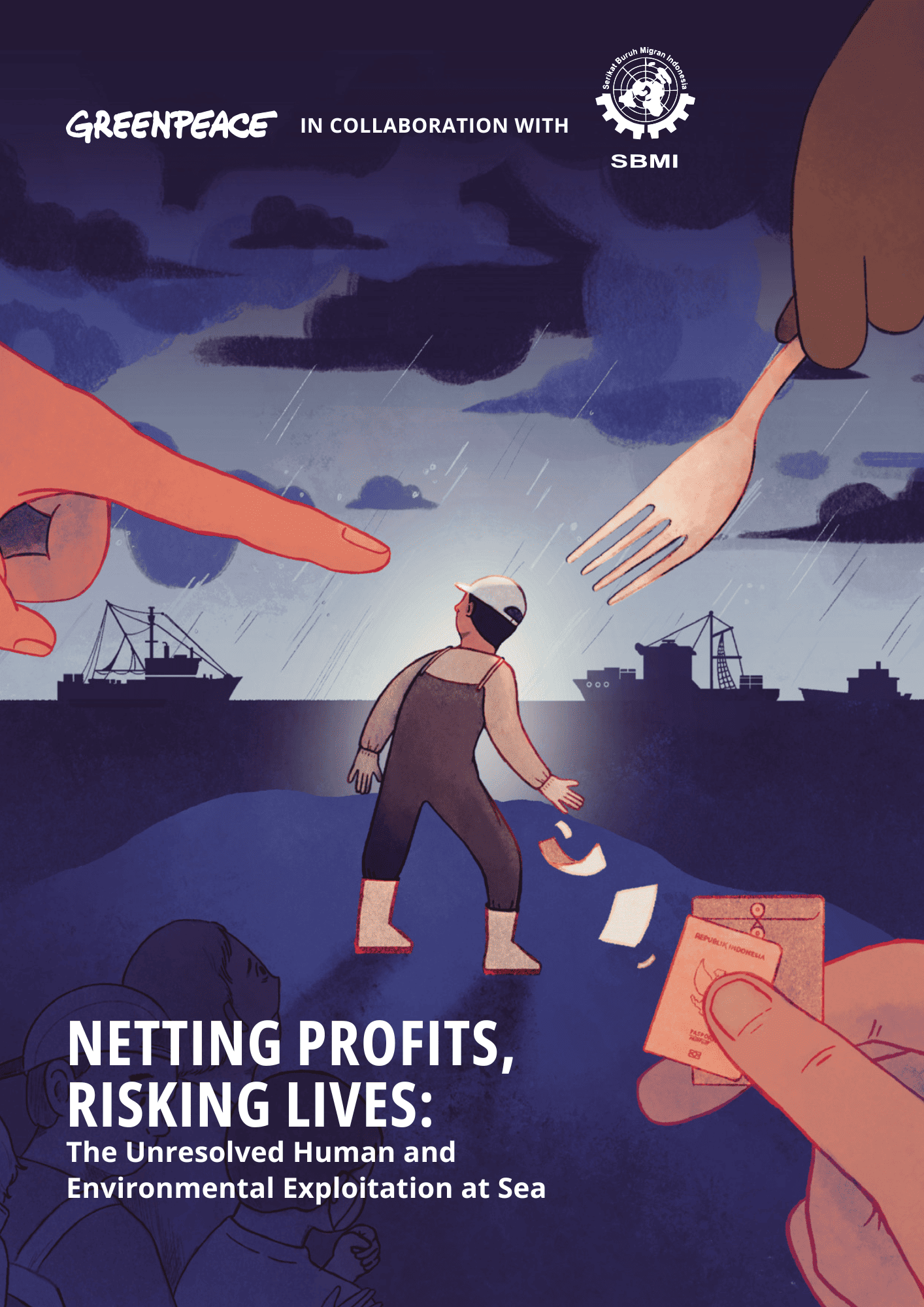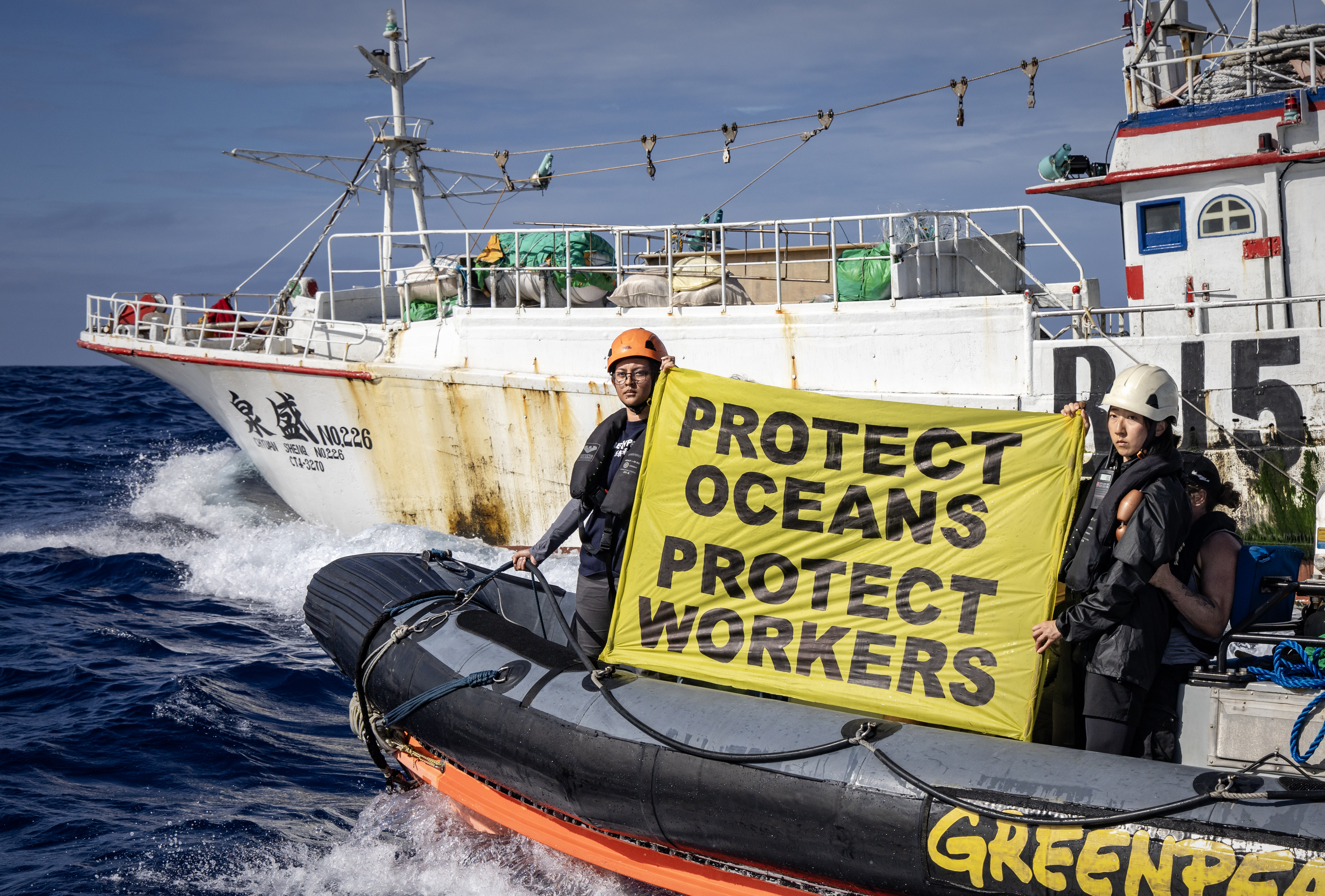Greenpeace Indonesia on government-style “Greenwashing”
Jakarta – Claiming to restore the environment, the Indonesian government on May 15 issued a regulation that has the potential to cause massive damage to marine ecosystems. Through Government Regulation Number 26 of 2023 (PP 26/2023) concerning Management of Sedimentation Products in the Sea, the government has again allowed the export of sea sand which has been banned since 2003. There are at least two articles in regulation that contain provisions regarding the export of sea sand–Article 9 and Article 15.
Afdillah, Oceans Campaigner for Greenpeace Indonesia said:
“This is ‘greenwashing’ by the government. They are using a narrative that seems to be aimed at restoring the environment and ensuring sustainability, while in fact they are rolling out the ‘red carpet’ for business people and oligarchs.
“The regulation allows the dredging, suction, and export of sea sand which will definitely destroy the marine ecosystem. The activity will also accelerate the sinking of small islands around the mined area because it changes the contours of the seabed which affect the pattern of ocean currents and waves. We must consider the potential losses that will be experienced by coastal communities who will be directly affected by ecological changes due to sea sand mining.”
The Indonesian government had previously banned the export of sea sand. In February 2003, the Minister of Industry and Trade, the Minister of Maritime Affairs and Fisheries, and the Minister of the Environment issued a joint decree which regulated this matter. At that time, the decree was made to prevent environmental damage leading to the subsidence of small islands in the Riau Islands due to sea sand mining.
Because it only prohibits sea sand export, since the decree was issued sea sand mining activities still continue in Indonesia, particularly in South Sulawesi. Forced to support a national strategic project, ecosystem and coastal communities in Kodingareng Island, Makassar, must now deal with socio-economic losses, not to mention environmental impacts. These were revealed in a report titled “Panraki Pa’boya-Boyangang: National Strategic Project Oligarchy and Damage to the Spermonde Sea”. This report was issued by Greenpeace Indonesia together with a number of other civil society organizations that are members of the Save Spermonde Coalition in 2020.
“The PP 26/2023 adds to the government’s poor record in handling the maritime sector. The government is incapable of managing marine resources intelligently, so they often take shortcuts to gain more state revenues through extractive methods like this. What’s worse, this kind of policy was be taken without careful study and ignores ecological concerns and human rights,” Afdillah added.
Earlier this year, the Indonesian government issued a similar policy–Government Regulation Number 11 of 2023 (PP 11/2023) on Measured Fishing. The government also made a claim that the policy is a step to manage marine resources sustainably. However, Greenpeace Indonesia and other civil society organizations think that the regulation is a trick by the government to further enrich the oligarchs and increase state income from the fisheries sector.
Media Contact:
Vela Andapita, GPSEA Beyond Seafood Digital Communications Coordinator, +62 817 575 9449, [email protected]



